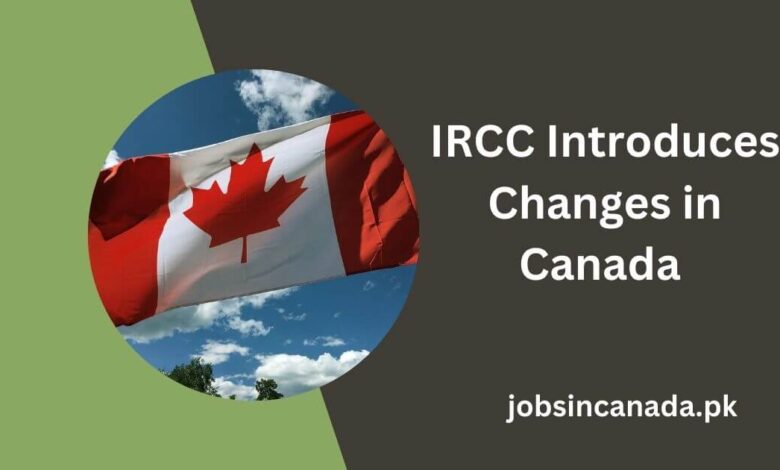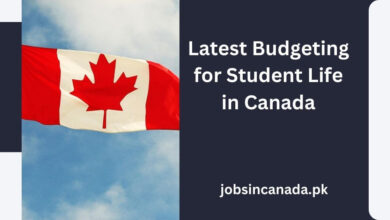IRCC Introduces Changes in Canada – For International Students

Due to the prestige of Canada’s universities, numerous international students aspire to pursue their education in the country. International students have encountered challenges along their journey, despite the alluring opportunities offered by Canada’s exceptional education system.
Marc Miller, the Minister of Immigration, Refugees, and Citizenship, has implemented a variety of measures in response to this. The objective of these measures is to safeguard students from fraud and enhance Canada’s International Student Program.
IRCC Will Protect International Students in Canada
Starting, post-secondary DLIs are required to promptly verify the acceptance letters of applicants with IRCC. To prevent letter-of-acceptance deception, this proactive verification method guarantees that study permits are issued exclusively to individuals who have received valid acceptance letters. This solution is designed to prevent future fraudulent investigations and to address past student concerns generated by them.
IRCC intends to establish a “recognized institution framework” that will prioritize the processing of study permits for post-secondary Designated Learning Institutions in the upcoming fall semester. This system aims to incentivize colleges that prioritize the well-being of their international students.
IRCC plans to undertake a comprehensive review of the Post-Graduation Work Permit Program criteria in the upcoming months, implementing modifications that are by the objectives of the Canadian labor market and Francophone immigration.
Maintaining the Integrity of Canada’s International Student Program
These measures are a deliberate response to threats to the integrity of the foreign student program, which is a testament to the substantial contributions that foreign students have made to the social, cultural, and economic fiber of Canada. The objective is to prevent fraud advisors from exploiting legitimate students by promptly identifying fabricated letters of admission.
Institutions that exhibit robust support for international students will be acknowledged, and their applications will be prioritized for processing. This targeted strategy aims to identify and retain pupils who are in alignment with Canada’s immigration and economic objectives.
The International Student Program and the broader engagement program, “An Immigration System for Canada’s Future,” are currently being reviewed, and these substantial revisions are the first to emerge. This initiative focuses on the importance of collaboration among institutions, provinces, territories, and organizations that represent Canada’s educational landscape.
Minister Marc Miller declared, “International students are intelligent, bright, and deserving of an exceptional experience in Canada.” We will persist in our efforts to fortify Canada’s International Student Program by protecting students and removing those who attempt to exploit them.
Check Also: Reaction of provinces and schools in Canada – study permit
Interesting Facts: International Education in Canada
- Each year, international education generates over $22 billion in revenue for the Canadian economy, which in turn supports more than 200,000 employees.
- The GDP of Canada experienced a $7 billion decline as a consequence of the temporary decrease in the number of international students in 2020.
- In Canada’s ten provinces and three territories, the organization, delivery, and evaluation of education are the responsibility of the provincial ministries of education.
- An IRCC task group collaborated with the CBSA to investigate cases of students who were impacted by fraudulent acceptance letters. The task group identified legitimate cases and prevented their removal.
A Brighter Future for International Students
The future of international students in Canada appears more promising and secure as these enhancements take effect. The genuine dedication to ensuring that all international students in Canada have a positive and enriching experience is evident in the determination to enhance the International Student Program.
Revised requirements to better protect international students
DLIs will be obligated to authenticate the LOAs that students submit through an online portal that is exclusively accessible to their IRCC representative(s) under the new structure. Schools will now have a maximum of ten calendar days to verify acceptance letters. The student visa application will be cancelled and returned to the applicant, along with any processing expenses, if a DLI fails to confirm the LOA within the specified time frame or if the letter is validated as fraudulent.
After the verification deadline has expired, DLIs will be unable to validate LOAs.
In the aftermath of a plethora of previous abuses of Canada’s international student systems, including a high-profile case last year that involved the near deportation of 700 Indian students who were deceived into traveling to Canada by a fraudulent immigration consultant who forged false acceptance letters, these new changes have been implemented.
Additional information regarding the new measures mandated by DLIs to authenticate LOAs is available on the government’s website.
The Trustworthy Institutions Framework
Additionally, the “Trusted Institutions Framework” was proposed by the IRCC this year for DLIs. As part of this new approach, a two-tiered system for issuing study permits, comparable to the one previously described, will be implemented.
Additionally, this designation will provide numerous advantages to the reputable institutions that are chosen under this framework, such as expedited processing of study permits.
The IRCC intends to implement this framework in the autumn of, even though its functionality remains unknown. This year, IRCC has consistently emphasized that the international student program’s integrity is of the utmost importance. The department has proposed that it may investigate the possibility of restricting the number of student visas to ensure that DLIs can provide sufficient support for the academic experiences of overseas students.
Benefits for IRCC Introduces Changes in Canada
- Enhanced Processing Times: One of the primary modifications is the reduction of backlogs and processing times for permanent residency, citizenship, and temporary residence applications. It is anticipated that this will facilitate and expedite the process of settling in Canada for immigrants.
- Targeted Immigration for Economic Growth: The new policies prioritize the recruitment of skilled laborers to sustain Canada’s expanding economy. This will contribute to economic stability and development by addressing labor shortages in critical sectors.
- Enhanced Family Reunification: The modifications ease the process of family reunification in Canada by enhancing the pathways for this process. This will contribute to the development of Canadian communities and guarantee that immigrants receive the necessary social support to flourish.
- Enhanced Flexibility for International Students: Changes that enable international students to remain in Canada for an extended period of time after completing their studies in order to work and acquire experience may be advantageous. This can facilitate their transition to permanent residency, thereby contributing to the innovation and workforce development of Canada.
- Inclusive Immigration: To enhance Canada’s humanitarian role and establish a multicultural, diverse society, there is an ongoing effort to establish more inclusive immigration pathways for refugees, asylum seekers, and individuals from a variety of origins.
- Increased Support for Provincial Nominee Programs (PNPs): The changes also provide provinces with more control over the selection of immigrants based on local labor market requirements, thereby supporting the expansion of Provincial Nominee Programs (PNPs).
- More Opportunities for Tech Workers: Canada’s technology sector has been a primary focus, with the implementation of special programs to attract tech workers. These initiatives have the potential to foster innovation and facilitate the industry’s expansion.
Further changes
The international student program in Canada is expected to endure substantial modifications in 2025.
In 2025, the IRCC will, in particular:
- Increase the cost-of-living requirement for pupils by CAD 10,000.
- International students should reconsider the 20-hour labor limit.
- Eliminate the facilitative policy that permits international students to deduct the time they spend abroad from their Post-Graduation Work Permit (PGWP); and
- Make new modifications to the PGWP program.
Additionally, the administration has declared its intention to more closely align foreign student enrollment and PGWP issuance with the demographic and labor market requirements. In general, 2025 is expected to bring about substantial change as Canada prepares to accommodate approximately one million international students in the coming year.
Fraquality Asked Question:
-
What are the updates for IRCC in 2025?
On November 15, 2025, Immigration, Refugees and Citizenship Canada (IRCC) announced the following two updates to the International Student Program regulations: Changes to the off-campus work hours. Changing school as a study permit holder.
-
What are the new rules in Canada?
Canada has updated rules for the Post-Graduation Work Permit (PGWP), effective from November. These changes include stricter guidelines for college graduates, focusing on specific fields of study. Popular programs like business and hospitality are excluded, impacting many international students
-
Is Canada’s work permit changing in 2025?
International applicants who have not applied for their study permit before November 1, 2025, will need to study in a program identified by IRCC as eligible for a post-graduation work permit, of they wish to work in Canada following graduation.




